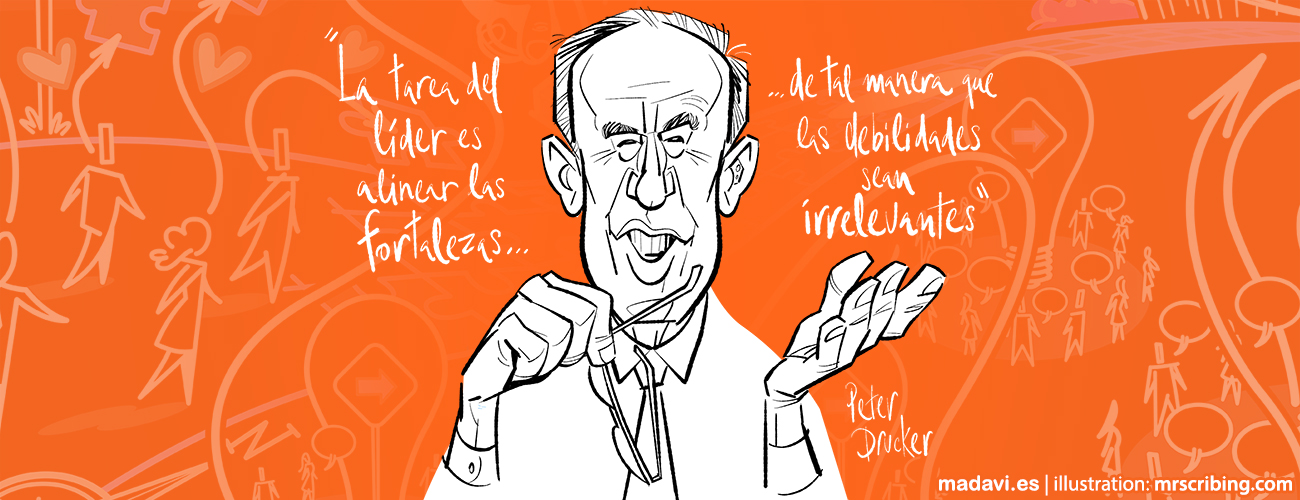“No-one should be named in a managerial position if his or her vision is focused on the weaknesses rather than the strengths of people ” Peter Drucker.
In an ever more globalized world which is in constant evolution, organizations are undergoing transformation processes as never before and converting into areas which are more diverse, innovative and cosmopolitan. In this context people se are starting to be valued and positioned increasingly as the most important asset of the company.
The Royal Spanish Academy (RAE) defines the meaning of talent as “an intelligent or able person for a specific occupation”. Although it seems to be a simple thing to understand, some writers like Peter Drucker, see it from a much more complex perspective. Drucker, writer of dozens of books and is considered to be the father of modern management, believed that people are the centre of the revolution in quality and productivity in the heart of companies, because the quality of the person is determinant in the quality of work.
People in the centre of the organization
Drucker was one of the first writers to see people for what they really are: The most important resource in the organization, and as such cannot be reduced to a number expressed as a cost. He said that the people who possess talent are the principle ingredient in successful companies, going further than simple tangible aspects. An idea, which in its day, was undoubtedly revolutionary.
Talent has to be managed precisely by the appropriate leader or on the contrary there is the risk of losing it. “No-one should be named in a managerial position if his vision focuses on weaknesses instead of the strengths of people”, Drucker said, in line with the principles of madavi. The mission of a leader should precisely be the alignment of the strengths of an organization in such a way that the weaknesses become something irrelevant. That is to say, to lead in an appreciative manner which is undoubtedly the easiest and most effective one.
To lead in an appreciative manner
Everyone who leads has the potential to do so appreciatively, logically using his or her strengths and personal style. Some leaders inspire more, while others rely more on process. What changes is the focus: to work from abundance instead of from scarcity.
This type of leadership is based appreciative inquiry, a concept that believes that a system moves in the direction it investigates. That is to say that companies grow and develop at a greater speed as long as they investigate what they do have and what they do want rather than investigate the problems. If we study problems we shall not reach the desired results….we shall only waste resources which, by the way, are valuable and scarce.
Applying appreciative inquiry to people means discovering all their strengths and those of others with the objective of combining them. They have told us that we have strengths and weaknesses and that is not true. We only have strengths, weaknesses is what we do not have. What can you do with what you do not have? NOTHING.
In this situation, as Drucker pointed out, successful companies are and will be those that are capable of creating the necessary conditions which permit the employees to give the best of themselves… to work in an appreciative environment. Each company is a learning institution at all levels and permanently so, which means that we have to ensure to make effective the strengths and talents of our employees and develop new strengths, which combined will make the weaknesses which you do not have irrelevant, because you have combined in teams your strengths with those of the others.

